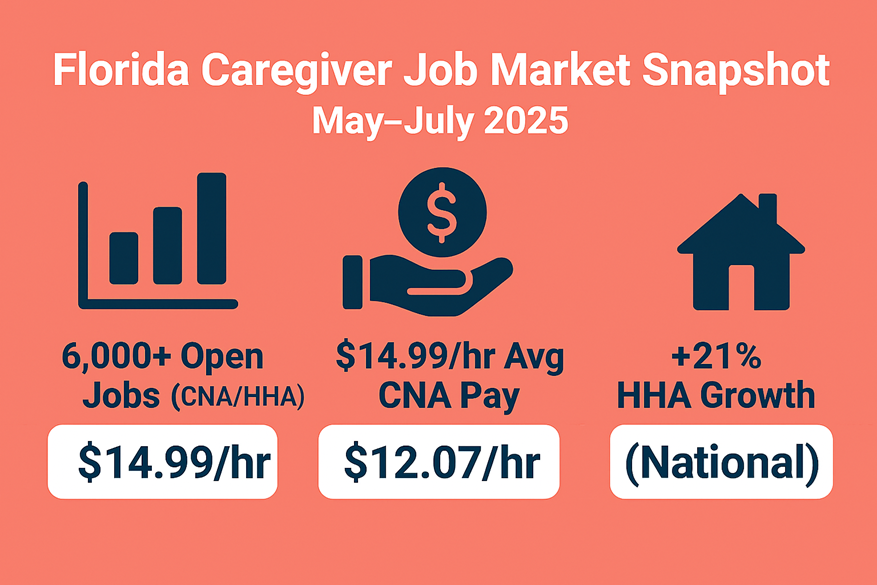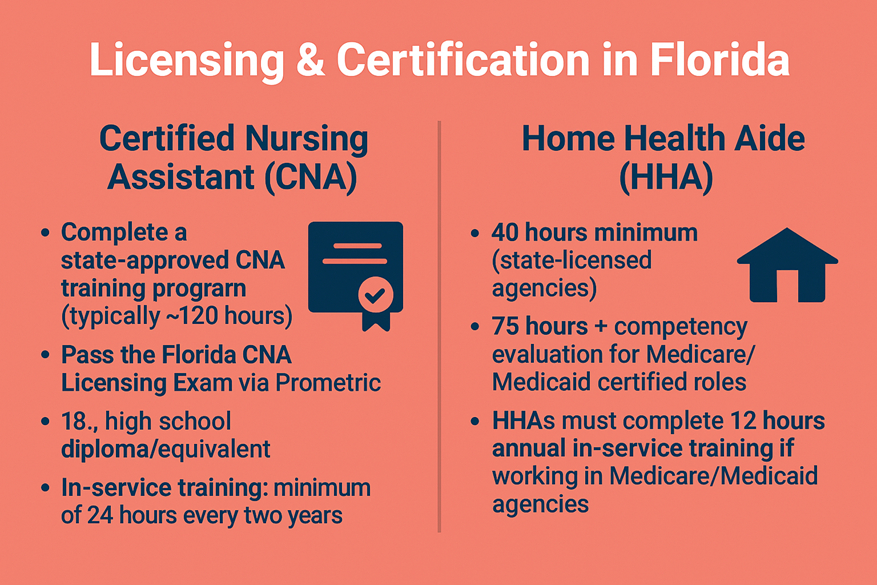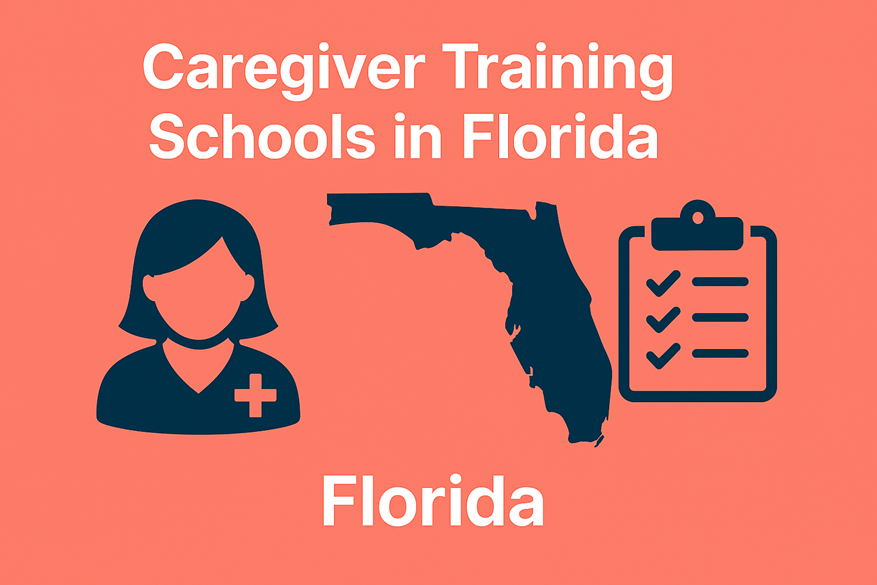Florida ranks as the 3rd‑most populous state in the U.S. (~22.6 million in 2025) and has the highest share of seniors, with over 21 % aged 65+. That demographic reality creates a robust, ongoing demand for certified nursing assistants (CNAs) and home health aides (HHAs) in long‑term care, home care, hospice, and assisted living settings.
Your guide will help aspiring caregivers navigate the training landscape—comparing public/private colleges and vocational schools—while arming you with the latest job market data, licensure requirements, costs, and more in Florida.
Public vs Private vs Vocational Schools: Choosing the Right Path
Public colleges typically offer greater financial aid and broader academic recognition, while private/career schools can fast-track you into the workforce. Vocational programs provide short-term, practical training with strong local job placement support.
Public & Private Colleges with CNA/HHA Programs
Note: Costs vary based on residency, supplies, and exam fees.
Vocational & Career Technical Schools
Florida Job Market Snapshot (May–July 2025)

- 6000+ CNA/HHA job listings statewide on Indeed, indicating consistent demand
- Average CNA wage:
$14.99/hr ($31,188/yr) as of July 2025 - Live-in HHA average pay: ~$12.07/hr as of July 5, 2025
- National outlook: 21% growth projected for home health aides over 2023–33
- Florida CNA growth rate: ~6.5% projected growth by 2025—higher than national average
Interpretation: Florida is experiencing strong and growing demand for both CNAs and HHAs, driven by its aging population and preference for in-home care. Wages are modest and improving, with potential for advancement.
Licensing & Certification in Florida

1.1 Certified Nursing Assistant (CNA)
Requirements:
- Complete a state-approved CNA training program (typically ~120 hours)
- Pass the Florida CNA Licensing Exam via Prometric
- 18+, high school diploma/equivalent
- In‑service training: minimum of 24 hours every two years
1.2 Home Health Aide (HHA)
Florida law recognizes multiple training paths:
- 40 hours minimum (state‑licensed agencies)
- 75 hours + competency evaluation for Medicare/Medicaid certified roles
- HHAs must complete 12 hours annual in-service training if working in Medicare/Medicaid agencies
- All HHAs require CPR and HIV/AIDS training, and 2-hour medication assistance training if helping residents self-administer
Tip: CNAs can work as HHAs without additional HHA certification—so CNA training covers both roles.
What It Takes: Timeline, Costs & Career Path
Total time to launch your career: ~1–3 months, with costs ranging across institutions and formats.
Recap & Next Steps
- Compare your options: public vs private vs vocational schools
- Consider CNA first—qualifies you for HHA roles and offers flexibility
- Find a program tailored to your needs: in-person vs online hybrid, cost, scheduling
- Plan ahead for licensure: prepare for the Prometric exam and budgeting
- Explore job pipelines: many schools offer connections with home health agencies and LTC facilities
- Expect to enter the workforce within 3 months and start earning ~$15/hr with future growth potential
Ready to Become a Caregiver in Florida?
- Tip #1: Tour local programs (e.g., Indian River State, Southern Tech) to see hands-on labs
- Tip #2: Verify if the program includes Prometric prep and exam fees
- Tip #3: Connect with a career advisor about job placement in assisted living, home care, or hospice
- Tip #4: Ask about financial aid, vouchers, or scholarships—particularly at public institution
Disclaimer
This article provides educational information only and does not constitute legal or medical advice. While we strive for accuracy, licensing processes, costs, and program details may change—verify with schools and Florida licensing bodies before enrollment.
Sources
- Florida CNA & HHA job listings on Indeed (~6k openings) ACTIVE Network+15Indeed+15Florida Board of Nursing+15Florida Health Care AdminHollywood Career Institute+6Florida Board of Nursing+6ACTIVE Network+6Florida Health Care Admin+1hhacertificate.com+1IntelyCare+1Caregiver List+1WikipediaACTIVE Network+1Southern Technical Institute+1
- BLS national job outlook and wages for HHAs/CNAs (May 2024)
- Florida-specific wage data from ZipRecruiter (July 2025) ZipRecruiter+1ZipRecruiter+1
- CNA projected demand growth in Florida (6.5%) Vitali
- Florida CNA licensing & in‑service training requirements
- Florida HHA training & competency mandates
- Program specifics: IT of Central Florida, IRSC HHA, Southern Technical Institute I.T of Central Florida+1Indian River State College+1
- Vocational school info: Erwin Technical, Ridge Career Center Wikipedia+1Wikipedia+1

